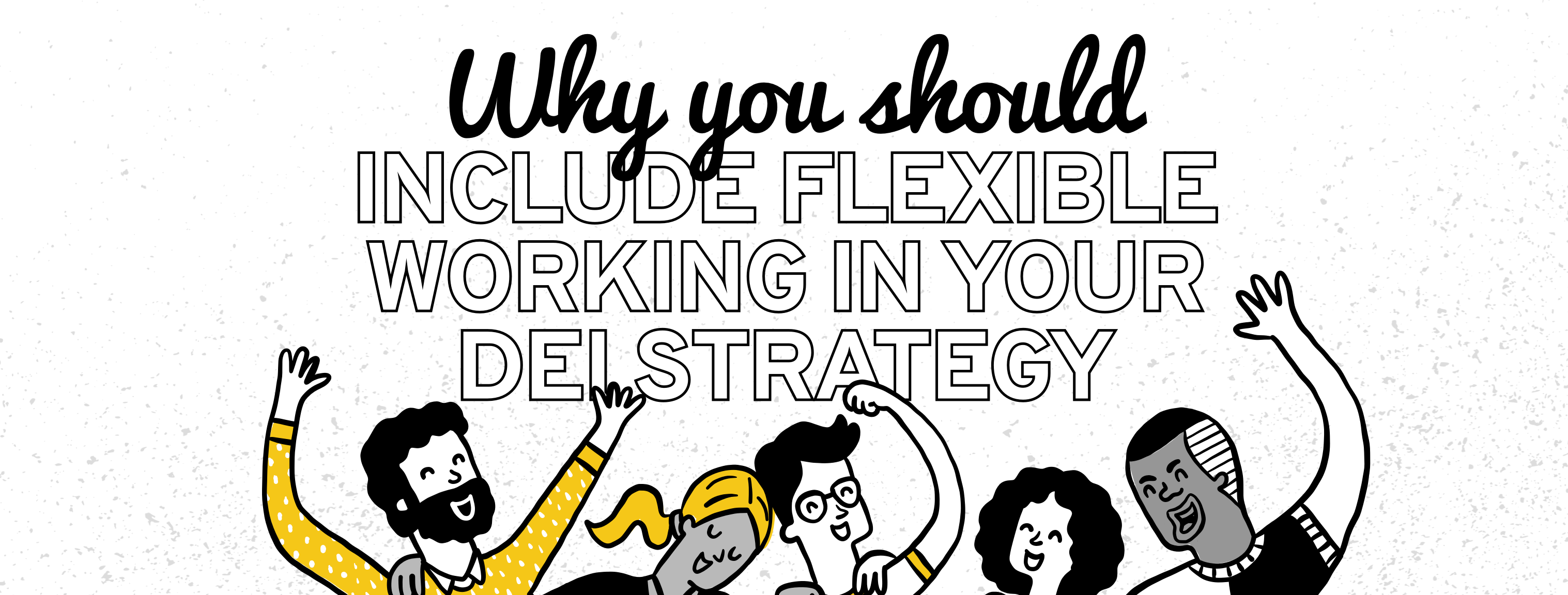Why You Should Include Flexible Working In Your DEI Strategy
29th Jun 2022

Did you know that flexibility can and should be a key part of your DEI strategy?
With the onset of the COVID-19 pandemic in March 2020, millions of workers were catapulted into a new reality where working from home became the norm. Throughout the pandemic, staff have shared the many benefits of a remote-first approach to work: increased work-life balance, flexibility around parenting and childcare, and so much more.
Flexibility at work can lead to better hiring, retention of marginalised employees and support for more women to remain in the workplace.
A flexible working environment is a more inclusive working environment, and without inclusivity, you cannot achieve genuine diversity and equity within your organisation.
Here is how embracing flexibility at work can help you become a more diverse and inclusive company:
Improve disability inclusion
People with disabilities experience better inclusion and accessibility.
In the UK alone, it is estimated that 1 in 5 people have a disability, with 80% of those people having an invisible disability. With over 4.4 million disabled people in the workforce, it's highly likely that you work with or employ someone who lives with a disability.
For many people with disabilities and chronic health conditions, commuting can be a significant barrier to work. For a person with a visual impairment, what might seem like a relatively easy journey for an able-bodied person can take them more time and effort. By offering flexible working, individuals with disabilities can receive the accommodations they need to thrive (which for many, is the ability to work at home!) In addition, disabled staff can set up their work area in a way that meets that specific and unique needs, and can organise their work day around their needs.
It doesn't excuse the work we have to do around accessibility in the workplace, but it's an important start.
Improve inclusivity for parents and caregivers
Flexibility can help retain working parents and those with caring responsibilities.
With the onset of the COVID-19 pandemic, research from the Fawcett Society found that in 2020, 1 in 3 working mothers had lost work or hours due to challenges around childcare and school closures. For parents or those with caring responsibilities (the majority of whom are women), flexible working makes it easier to balance family life and work responsibilities without having to sacrifice their careers. Parents no longer have to juggle childcare arrangements around lengthy commutes, and carers have the autonomy to fit their caregiving responsibilities around their work, reducing the burden of trying to "manage it all."
Of course, flexibility is where we start – employers can take extra steps (e.g. flexible hours, enhanced annual leave, or the ability to work from home to cut down on commuting) to help with the unique challenges that come with parenting or caregiving responsibilities.
Build a better environment for marginalised employees
Marginalised employees feel safer at work to show up authentically.
For many marginalised employees, for example, those who are members of the LGBTQIA+ community, going to work can also mean having to deal with macro-aggressions, such as being misgendered by co-workers, or feeling the need to assimilate (e.g. by changing what they wear, their behaviour, or even their style of speech) to be accepted by the company's dominant culture. This is supported by research from McKinsey which found that LGBTQIA+ employees were 13% more likely to prefer hybrid work when compared to their heterosexual peers. You can also check out our tips on how you can create a LGBTQIA+ inclusive workplace.
Micro-aggressions and workplace discrimination makes it harder for marginalised employees to feel safe enough to be themselves at work. A Future Forum's April 2022 pulse survey, which includes responses from over 10,000 knowledge workers in the UK, US, France, Germany and other countries found that the desire for flexibility remains strongest among underrepresented groups. Ethnic minorities overall do not feel they are able to bring their authentic selves to work. Future Forum also found that Black employees reported a higher "sense of belonging" at work (up 10%) and a stronger sense of being “fairly treated” at work (up 7%) compared to November 2021.
It is clear that while flexibility is not going to solve discrimination at work, it significantly supports marginalised employees who often feel safer at home, and don't have to self-police on a daily basis to fit in at work.